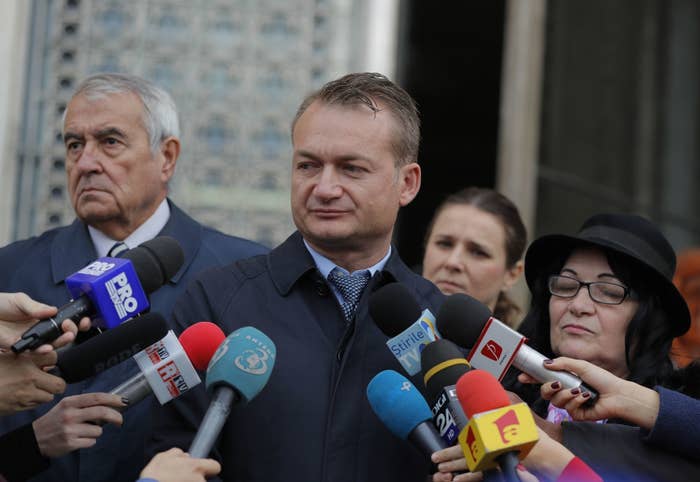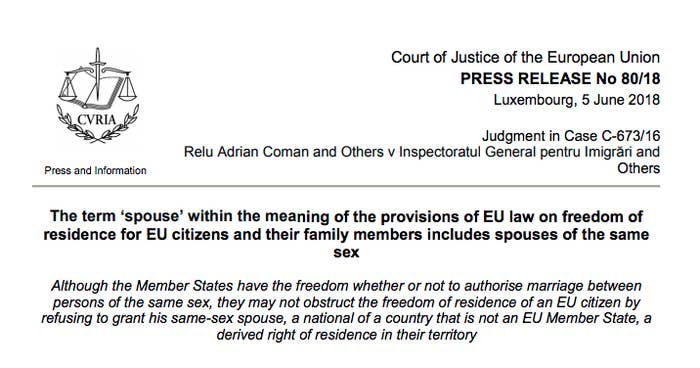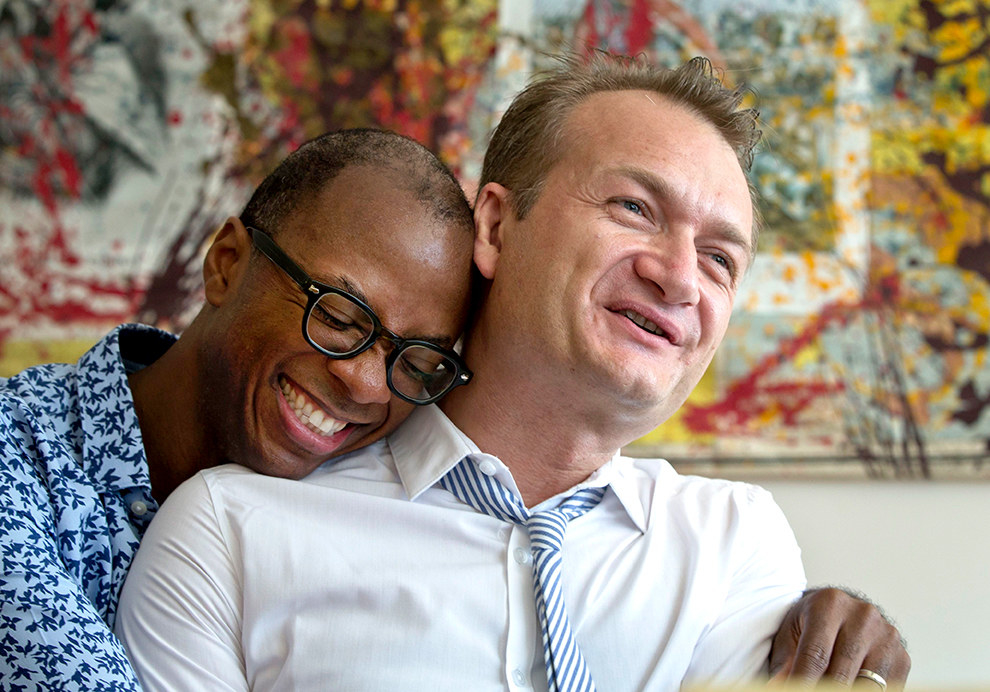
The highest court in the European Union has declared on Tuesday that all EU citizens – whether in opposite-sex or same-sex relationships – can bring their non-EU spouses into their country to live with them, even if that member state doesn't recognise same-sex marriage. LGBT organisations have hailed the historic ruling as a victory for human rights.
In a landmark case, the Court of Justice of the European Union ruled in favour of a Romanian man, Relu Coman, who had been denied the right to bring his American husband, Robert Hamilton, into Romania (where same-sex marriage is not legal), and who had brought a legal challenge against the decision.
As a result of this ruling, anyone can now live with their husband or wife in any EU country regardless of gender, because according to the Court of Justice the term "spouse" is not gendered. However, this does not mean that all 28 countries in the EU have to allow same-sex marriages. They merely have to grant residency rights to same-sex partners.
"Although the Member States have the freedom whether or not to authorise marriage between persons of the same sex, they may not obstruct the freedom of residence of an EU citizen by refusing to grant his same-sex spouse, a national of a country that is not an EU Member State, a derived right of residence in their territory," the court said.
"The term ‘spouse’ within the meaning of the provisions of EU law on freedom of residence for EU citizens and their family members includes spouses of the same sex."

The case began six years ago when Coman attempted to gain permission from the Romanian government to bring Hamilton, his husband, into the country to live there. The authorities in Romania responded by telling Coman that despite freedom of movement laws and spousal rights within the EU, Hamilton could only live in Romania for three months, because the jurisdiction doesn't recognise same-sex marriage.

In a legal challenge of discrimination on the grounds of sexual orientation, the court in Romania referred the case up to EU judges. In January a senior legal adviser to the EU court, advocate general Melchior Wathelet, recommended that "spouse" be regarded as a nongendered term, but his advice was not legally binding until today's ruling.
Following the ruling this morning, Hamilton tweeted, "My Husband @adriancoman and I are so excited for this decision! We thank everyone who has supported us in this journey! Now we are one step closer to being recognized as a family!"
My Husband @adriancoman and I are so excited for this decision! We thank everyone who has supported us in this journey! Now we are one step closer to being recognized as a family! #MarriageEquality #EqualSpouses #LoveAndMarriage #Justice #EU #Equality 🌿🤴🏽❤️🤴🌿 https://t.co/sapSq6mudg
The law firm, White and Case, who represented Coman and Hamilton (pro bono) were also delighted with the result. “This is the first time that the Court of Justice has had an opportunity to rule on this matter, and it is a milestone on the road to full equality for same sex families across Europe,” said White & Case partner Jacquelyn MacLennan. “I hope that these developments, as well as today’s judgment of the Court of Justice, will help further in shifting attitudes across Central and Eastern Europe, ensuring that this evolution towards equality is truly Europe-wide.”
Although same-sex marriage is legal in Belgium, Denmark, Finland, France, Germany, Ireland, Luxembourg, the Netherlands, Portugal, Spain, Sweden, the UK (apart from Northern Ireland), and Malta, there are no gay partnership rights in Bulgaria, Latvia, Lithuania, Poland, Romania, and Slovakia, and only limited same-sex spousal rights in other states such as the Czech Republic and Estonia.
